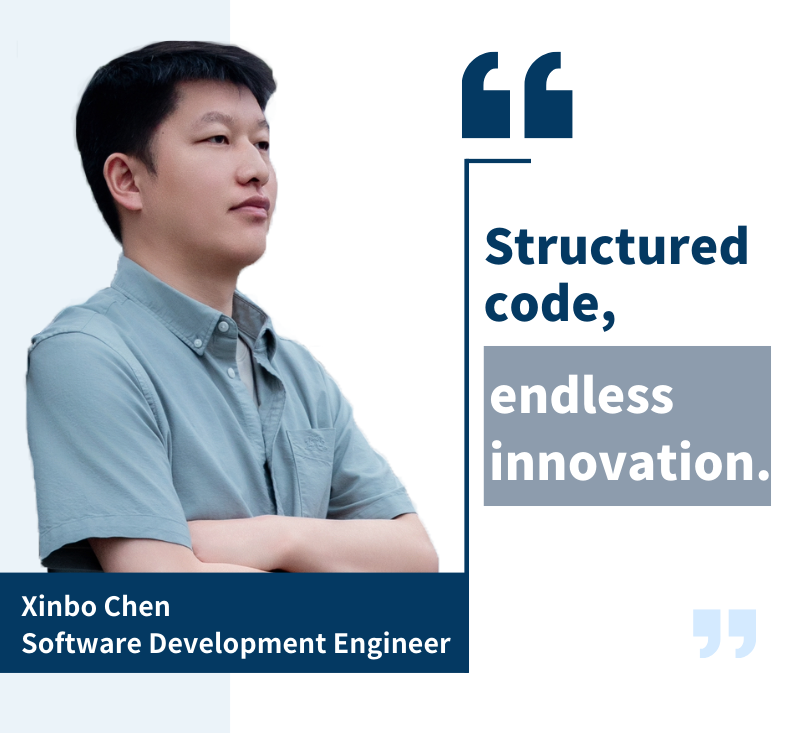


Ep.4
The guest for this episode is Xinbo Chen, a Software Development Engineer in the automotive industry. His role revolves around developing brake controller software based on the AUTOSAR architecture, with a primary focus on communication software. This encompasses Wake-on-LAN (WoL), network-state management service, interaction with application layer interfaces, vehicle network message fault monitoring and information security functions. Xinbo poetically described the AUTOSAR architecture as akin to a grand tree, where his duty is to nurture its growth with vibrant branches and leaves, infusing it with renewed vitality.
Don"t miss out on this opportunity to delve deeper into Xinbo Chen"s journey! Tune in to the podcast or read the article for an insider"s perspective on his career and achievements.

Episode Transcript
[00:44] Talk about your first impression of ALTEN.
I heard about ALTEN from a friend. At that time, I learned that ALTEN is a global company covering sectors such as automotive, aerospace, industrial and life science, and has branches in many major cities across the country. I felt that ALTEN was quite competitive, so I submitted my resume. Fortunately, I received the offer and joined ALTEN China.
[01:57] Have your previous expectations of the company been met since working here?
The work here has exceeded my expectations. The environment is exceptional, with a vibrant team atmosphere that never feels dull. Moreover, my supervisor is an expert whose expertise and broad perspective provide ample learning opportunities for me. Though I occasionally make mistakes in my code, there is a certain level of tolerance here. Everyone collaborates wholeheartedly to solve problems, and my superior offers me professional guidance, accelerating my growth.
[03:05] Please share your own moment from this work.
When I first joined the company, I only had mastery over the C language. However, afterward, I learned Python and CAPL, two new programming languages, from my colleagues. I iterated on the office tools developed by the department and discovered a way to automate filling Excel and Word documents with scripts, significantly improving efficiency. My superior promoted this tool at a meeting, and I felt very fulfilled.
[04:11] What characteristics do you think can help one thrive in this field?
Engineers with planning and strong execution skills are particularly suitable for the automotive industry. Undoubtedly, the automotive industry is highly competitive nowadays, and engineers must face the challenge of completing development tasks within a short timeframe, sometimes needing to accommodate changes in requirements. In such scenarios, methodical engineers are better equipped to handle various difficulties. However, completing tasks does not equate to a lack of innovation. The standards provided by clients serve merely as a framework, such as AUTOSAR. Our work involves expanding upon this foundation, much like a tree growing new branches; various detailed functions also require implementation through writing code. Furthermore, ensuring code aesthetics and smooth functionality demands breaking through conventional thinking and continuously exploring the limits of innovation.
[05:00] What are your plans for your future work?
In the future, I still want to explore the field of basic software development because the AUTOSAR architecture is divided into many modules, such as operating systems, complex drivers, and mode management. Currently, I am only familiar with the modules that I primarily work on, while having only superficial knowledge of other modules. Therefore, I hope to continuously deepen my understanding of the AUTOSAR architecture in my future work.
The Next Guest
Minghan Liao | Aircraft Maintenance Engineer (AME)